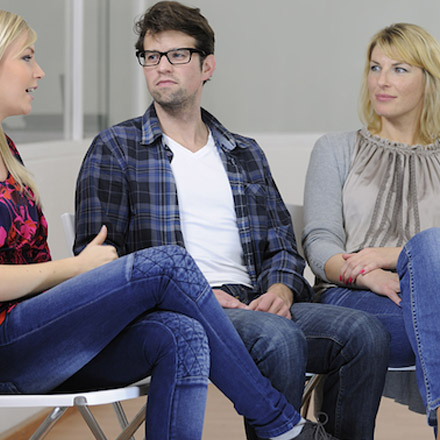When you face a general health condition or injury, rehabilitation is expected to get you back to a good place physically. However, even when your mental health has suffered due to an illness or addiction, mental rehabilitation is warranted. Mental rehabilitation provides the right levels of treatment and therapy to help you psychologically recover from mental illness.
These programs are important for helping your mind, cognitive functioning, and outlook return to a healthy state. Without these interventional rehabilitation programs, full recovery may never occur, which can take a major toll on overall well-being.
Depending on the type of mental illness, various types of mental rehabilitation programs may be recommended. Psychiatric, psychosocial, and cognitive rehabilitation are just a few examples. Take a closer look at mental rehabilitation and some examples below.
Types of Mental Rehabilitation Programs
Mental rehabilitation programs can take many forms, and one program may involve several elements of psychological therapy. The best rehabilitation plan is tailored to the patient's needs, such as the mental rehabilitation services offered through Pathways. Every individual's symptoms and diagnoses can be unique. Take a look at a few of the most common mental rehabilitation programs below.
Psychiatric Rehabilitation
Psychiatric rehabilitation programs are treatment plans designed to support individuals with serious mental illness (SMI). SMIs include conditions like major depressive disorder, bipolar disorder, or co-occurring mental health and substance abuse disorder.
Research from the National Mental Health Alliance (NAMI) states that 1 in 20 American adults (14.1 million) are living with a serious mental illness. Psychiatric rehabilitation can include an array of treatment types to focus on a diverse spectrum of SMI symptoms.
Cognitive Rehabilitation
Cognitive rehabilitation therapy (CRT) is a type of therapeutic modality aimed at restoring cognitive function. CRT is often used to treat people after traumatic brain injury or neuropsychological changes due to a medical issue. However, CRT can also be valuable for individuals with substance abuse disorders and other mental illnesses.
Scientifically, the brain and cognitive functions change as a result of substance abuse and mental illness. CRT focuses on rebuilding certain functions, like problem-solving, remaining attentive, and processing emotions and impulses.
Psychosocial Rehabilitation
Psychosocial rehabilitation is a mental health treatment aimed at helping individuals regain skills to function well in social settings. This form of rehabilitation can be extremely important for many types of mental illness. Individuals who have a history of addiction or mental illness often struggle to maintain positive social stability and connections.
For example, psychosocial rehabilitation may help an individual overcome social anxiety. With this treatment, they can achieve independence, find employment, or foster meaningful connections with others.
Occupational Therapy
Occupational therapy is a coordinated form of therapy focused on helping an individual regain functional capacity in their life. For example, an occupational therapy program may involve nurturing skill sets that would be useful in the workforce.
This is a critical component of recovery and is often involved in addiction or mental health rehab programs. Regaining the ability to achieve gainful employment can be a major factor in fostering self-esteem and supporting recovery for the long term.
Specialized Mental Health Rehabilitation Approaches
Specialized mental health rehabilitation approaches are targeted programs aimed at supporting individuals with specific mental health issues. These inpatient and outpatient programs may involve any or even all types of mental health rehabilitation. However, they are explicitly designed to meet the needs of the patient.
Behavioral Health Programs
A behavioral health program focuses on disorders like attention deficit hyperactivity disorder (ADHD), addictions, and oppositional defiant disorder (ODD). These treatment programs may involve everything from cognitive behavioral therapy sessions to group or peer therapy.
Eating Disorder Treatment
Eating disorder treatment programs are designed for individuals who struggle with eating disorders specifically. This can include conditions like bulimia nervosa, anorexia nervosa, or avoidant restrictive food intake disorder (ARFID). These treatment programs can involve psychotherapy, nutritional counseling, and medical monitoring and care.
Substance Abuse Rehabilitation
Substance abuse disorder may have characteristics of a behavioral disorder, but substance abuse is closely tied to mental health. Therefore, substance abuse rehabilitation is designed to help an individual achieve sobriety and long-term recovery. Sobriety and recovery are supported through various mental health rehabilitation approaches. Treatment can be outpatient or inpatient and may involve psychotherapy, psychosocial therapy, and more.
Anxiety Disorder Therapy
Anxiety disorder is one of the most common mental illnesses and is also one of the most common comorbid conditions with substance abuse disorder. Anxiety disorder therapy and treatment programs can be both outpatient and inpatient based. They may involve psychotherapy, medicinal support, cognitive behavioral therapy, and more.
A Final Word from Pathways
Seeking the appropriate levels of mental rehabilitation for a psychological illness or addiction can be the key to taking back your life. Further, seeking support from the best mental health care provider that offers diverse mental health rehabilitation programs is important. With a mental rehabilitation program that meets your needs, you have hope for a brighter future and a full recovery.
Sources
www.nami.org/about-mental-illness/mental-health-by-the-numbers/
*Not linked, but referenced for information
What is cognitive rehabilitation therapy, and how does it work? (medicalnewstoday.com)
Cognitive rehabilitation in addictive disorders - PMC (nih.gov)
Psychosocial Rehabilitation - UNC Center for Excellence in Community Mental Health
Occupational rehabilitation - an overview | ScienceDirect Topics
Eating Disorders: About More Than Food - National Institute of Mental Health (NIMH) (nih.gov)


